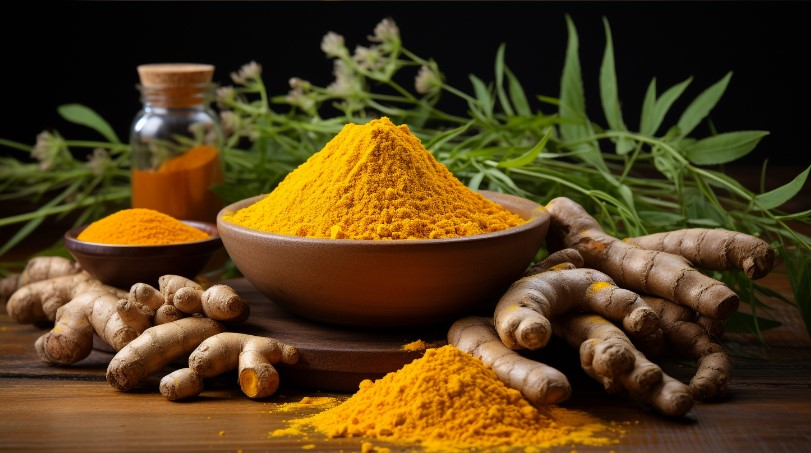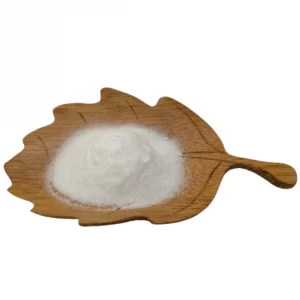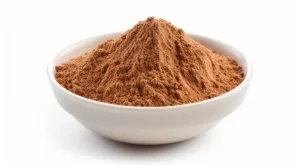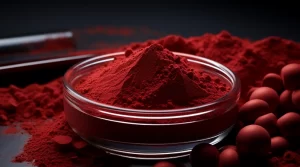クルクミン

健康サプリメントの世界で、スポーツサプリメント業界と同じくらい人気のある成分があるとすれば、それはクルクミンだ!しかし クルクミン 科学的研究がようやく追いつき始め、その究極の価値をさらに掘り下げようとしている。 クルクミン.あなたがボディビルダーであろうと、週末戦士であろうと、マラソンランナーであろうと、単なるアマチュアの重量挙げ選手であろうと、炎症が起こりすぎると多くの問題が生じることはよく知られている。例えば、レジスタンス・トレーニングは筋肉に炎症反応を引き起こし、筋肉が修復されて強く大きくなるのを助ける。もう一つの例は怪我である。炎症は、正常な創傷治癒のために必ず起こる重要な生理的プロセスです。しかし、関節や腱、あるいは腸が慢性的に炎症を起こしている場合は、対策を講じる必要があります。炎症を抑えるには様々な方法がありますが、最も一般的な方法のひとつは、強力な抗炎症作用を持つサプリメント、クルクミンを摂取することです。
クルクミン
クルクミン は、サプリメント業界で非常に人気のある成分である。幅広い効能があるが、主に炎症を抑えるために使用される。クルクミンは、ショウガ科の根のハーブであるウコンに含まれる主な天然ポリフェノールである。[1]
ターメリックは、料理に風味を加えるだけでなく、多くの健康上の利点があることが判明した。
歴史的に、ウコン(通称ターメリック)は、その抗炎症作用、抗酸化作用、抗菌作用、抗がん作用、抗変異作用により、様々な健康状態の治療に用いられてきた。[1]ウコンの健康上の利点は、クルクミンの含有量に大きく起因しており、クルクミンは細胞活性を誘導し、特定のシグナル伝達分子を標的とすることが判明している。[1]
研究によると クルクミン は、炎症、メタボリックシンドローム、痛みの軽減、腎臓の健康促進、変性性眼疾患の治療に有益である。[1]
研究では、クルクミンが炎症、メタボリックシンドローム、痛みの軽減、腎臓の健康促進、変性性眼疾患の治療に有益であることが示されている。[1]
予備研究では、テトラヒドロクルクミンはクルクミンと比較して、より強力な抗酸化物質であり、より強力な血糖調整剤であり、血中脂質レベルの最適化に優れていることが示されている。
バイオアベイラビリティ
クルクミンは体内で急速に代謝されるため[22]、その効果が1つ以上の代謝物に起因する可能性があることは理にかなっている。しかし、過去半世紀ほどの間に科学が飛躍的に発展したことを考えると、この基本的な構成要素が何なのか、最初はまったくわからないというのも理解できる。テトラヒドロクルクミンは1978年に初めて発見され[24]、すぐにクルクミンの主要な生理活性代謝物であるとのレッテルを貼られた。
研究では、テトラヒドロクルクミンがクルクミンの他の代謝物と比較して強い生物学的活性を有することが示されている。[25]化学的観点からも、4-HCは強力であることが証明されており、研究では、pH 7.2および37℃の0.1リン酸緩衝液中でクルクミンよりも安定であることが判明している。
高い生物学的利用能と強い抗酸化活性
テトラヒドロクルクミン:テトラヒドロクルクミンはクルクミンよりも水溶性が高いため、N2O誘導H2O誘導脂質過酸化を抑制する効果が高いことが、このレビューのある研究で明らかになった。[26]
テトラヒドロクルクミンは無色である。
テトラヒドロクルクミンはクルクミンの主な代謝成分であり、この化合物には効能があると考えられている。構造から見ると、テトラヒドロクルクミンは水素原子が4つ余分であることを除けば、クルクミンと非常によく似ている[2,3]。[2,3]もう一つの大きな違いは色である。クルクミンは鮮やかなゴールデンオレンジの色合いで知られているが、テトラヒドロクルクミンは無色である。[2, 3]
クルクミン メーカー /クルクミン メーカー /クルクミン サプライヤー /クルクミン 工場:
電話番号+86 (029) 8187 2325
Eメール:[email protected]
参考
- Prasad, Sahdeo; "Turmeric, the Golden Spice."; Herbal Medicine:Biomolecular and Clinical Aspects.2nd Edition; U.S. National Library of Medicine; 1 Jan. 1970;
- Kiuchi F., et al; "Nematocidal Activity of Turmeric:クルクミノイドの相乗作用"; Chemical & Pharmaceutical Bulletin; U.S. National Library of Medicine; September 1993;
- Changtam C., et al; "Curcuminoid Analogs With Potent Activity Against Trypanosoma and Leishmania Species."; European Journal of Medicinal Chemistry; U.S. National Library of Medicine; 2010;
- Bierhaus, A et al; "The dietary pigment curcumin reduces endothelial tissue factor gene expression by inhibiting binding of AP-1 to DNA and activation of NF-kappa B."; Thrombosis and haemostasis; vol. 77,4; 1997; 772-82;
- Dickinson, Dale A et al; "Curcumin alters EpRE and AP-1 binding complexes and elevates glutamate-cysteine ligase gene expression."; FASEB journal : official publication of Federation of American Societies for Experimental Biology 17,3; 2003; 473-5;
- Beevers, Christopher S et al; "Curcumin disrupts Mammalian target of rapamycin-raptor complex."; Cancer research; vol. 69,3; 2009; 1000-8;
- Leu, Tzeng-Horng et al; "Direct inhibitory effect of curcumin on Src and focal adhesion kinase activity."; Biochemical pharmacology; vol. 66,12; 2003; 2323-31;
- Lieu, Christopher, and Scott Kopetz; "The SRC family of protein tyrosine kinases: a new and promising target for colorectal cancer therapy."; Clinical colorectal cancer; vol. 9,2; 2010; 89-94;
- Noorafshan A, Ashkani-Esfahani S; "A review of therapeutic effects of curcumin"; Curr Pharm Des; 19(11):2032-2046; 2013;
- Lawrence, Toby; "The nuclear factor NF-kappaB pathway in inflammation."; Cold Spring Harbor perspectives in biology; vol. 1,6; 2009; a001651;
- Zhou, Hongyu et al; "The targets of curcumin."; Current drug targets; vol. 12,3; 2011; 332-47; Jurenka, Julie S; "Anti-inflammatory properties of curcumin, a major constituent of Curcuma longa: a review of preclinical and clinical research."; Alternative medicine review : a journal of clinical therapeutic; vol. 14,2; 2009; 141-53;
- Esmaily, Habibollah et al; "An investigation of effects of curcumin on anxiety and depression in obese individuals:A randomized controlled trial."; Chinese journal of integrative medicine; vol. 21,5; 2015; 332-8;
- DiSilvestro, Robert A et al; "Diverse effects of a low dose supplement of lipidated curcumin in healthy middle aged people.".Nutrition journal; vol. 11; 79; 26 Sep. 2012;
- Aggarwal, Bharat B; "Targeting inflammation-induced obesity and metabolic diseases by curcumin and other nutraceuticals."; Annual review of nutrition; vol. 30; 2010; 173-99;
- Anand, Preetha et al; "Bioavailability of curcumin: problems and promises.".Molecular pharmaceutics vol.4,6; 2007; 807-18;
- Jӓger, Ralf et al. "Comparative Absorption of Curcumin Formulations."; Nutrition Journal; BioMed Central; 2014;
- Shoba, G et al; "Influence of piperine on pharmacokinetics of curcumin in animals and human volunteers."; Planta medica; vol. 64,4; 1998; 353-6;
- Sandur, Santosh K et al; "Curcumin, demethoxycurcumin, bisdemethoxycurcumin, tetrahydrocurcumin and turmerones differentially regulate anti-inflammatory and anti-proliferative responses through ROS-independent mechanism"; Carcinogenesis; vol.28,8; 2007; 1765-73;
- Vareed, Shaiju K et al; "Pharmacokinetics of curcumin conjugate metabolites in healthy human subjects."; Cancer epidemiology, biomarkers & prevention : a publication of American Association for Cancer Research, cosponsored by American Society of Preventive Oncology; vol. 17,6; 2008; 1411-7;
- Ireson, Christopher R et al; "Metabolism of cancer chemopreventive agent curcumin in human and rat intestine."; Cancer epidemiology, biomarkers & prevention : a publication of American Association for Cancer Research, cosponsored by American Society of Preventive Oncology; vol. 11,1; 2002; 105-11;
- Ireson, Christopher R et al; "Metabolism of cancer chemopreventive agent curcumin in human and rat intestine."; Cancer epidemiology, biomarkers & prevention : a publication of American Association for Cancer Research, cosponsored by American Society of Preventive Oncology; vol. 11,1; 2002; 105-11;
- Pan, M H et al; "Biotransformation of curcumin through reduction and glucuronidation in mice."; Drug metabolism and disposition: the biological fate of chemicals; vol. 27,4; 1999; 486-94;
- Holder, G M et al; "The metabolism and excretion of curcumin (1,7-bis-(4-hydroxy-3-methoxyphenyl)-1,6-heptadiene-3,5-dione) in rat."; Xenobiotica: the fate of foreign compounds in biological systems; vol. 8,12; 1978; 761-8;
- Aggarwal, Bharat B et al; "Curcumin differs from tetrahydrocurcumin for molecular targets, signaling pathways and cellular responses."; Molecules (Basel, Switzerland); vol. 20,1; 185-205; 24 Dec. 2014;
- Khopde, S M et al; "Inhibition of radiation-induced lipid peroxidation by tetrahydrocurcumin: possible mechanism by pulse radiolysis."; Bioscience, biotechnology, and biochemistry; vol. 64,3; 2000; 503-9;
- Naito, Michitaka et al; "The protective effects of tetrahydrocurcumin on oxidative stress in cholesterol-fed rabbits."; Journal of atherosclerosis and thrombosis; vol. 9,5; 2002; 243-50;
- Zhang Q. et al; "Circulating Oxidized Low-Density Lipoprotein is a Strong Risk Factor for Early Stage of Coronary Heart Disease"; IUBMB Life; 71(2:277-282; February 2019;
- Holvoet P. et al; "The relationship between oxidized LDL and other cardiovascular risk factors and subclinical CVD in different ethnic groups: the Multi-Ethnic Study of Atherosclerosis (MESA)"; Atherosclerosis; 194(1):245-52; September 2007;
- Bartlett, Jacquelaine et al; "Isolated Low High-Density Lipoprotein Cholesterol a Cardiovascular Disease Risk Factor?New Insights From the Framingham Offspring Study"; Circulation; Cardiovascular Quality and Outcomes; vol. 9,3:206-212; 2016;
- Bertsch, Ruth Ann, and Maqdooda A Merchant; "Study of Use of Lipid Panels as a Marker of Insulin Resistance to Determine Cardiovascular Risk"; The Permanente Journal; vol. 19,4: 4-10; 2015;
- Wang, et al; "Efficacy of cholesterol levels and ratios in predicting future coronary heart disease in a Chinese population"; American Journal of Cardiology; 88(7):737-43; October 2001;
- Jeppesen, Jørgen, Ole Hein, Hans, Suadicani, Poul; et al; "Low Triglycerides-High High-Density Lipoprotein Cholesterol and Risk of Ischemic Heart Disease"; Archives of Internal Medicine; 161(3):361-366; 2001;
- Somparn, Poorichaya et al; "Comparative antioxidative activities of curcumin and its demethoxy and hydrogenated derivatives."; Biological & pharmaceutical bulletin; vol. 30,1; 2007; 74-8;
- Pari L, Murugan P; "Effect of tetrahydrocurcumin on blood glucose, plasma insulin and hepatic key enzymes in streptozotocin induced diabetic rats"; Journal of Basic and Clinical Physiology and Pharmacology; 16(4):257-74; 2005;
- Mukhopadhyay, A et al; "Anti-inflammatory and irritant activities of curcumin analogues in rats."; Agents and actions; vol. 12,4; 1982; 508-15;
- Zingg, Jean-Marc et al; "Regulatory effects of curcumin on lipid accumulation in monocytes/macrophages"; Journal of cellular biochemistry; vol. 113,3; 2012; 833-40;
- Purves D, Augustine GJ, Fitzpatrick D, et al.Sunderland (MA): Sinauer Associates; 2001.アセチルコリン。
- Hasselmo ME; "The role of acetylcholine in learning and memory; "Curr Opin Neurobiol.2006;16(6):710-715;
- ジョーンズBE;「覚醒から睡眠へ:神経細胞と化学基質」。Trends Pharmacol.Sci.; 2005; 26 (11): 578-86;
- Nakmareong S, et al; "Antioxidant and vascular protective effects of curcumin and tetrahydrocurcumin in rats with L-NAME-induced hypertension"; Naunyn Schmiedebergs Arch Pharmacol; 383(5):519-29; May 2011; doi: 10.1007/s00210-011-0624-z;
- Zhang, Zhen-Biao, et al; "Curcumin's Metabolites, Tetrahydrocurcumin and Octahydrocurcumin, Possess Superior Anti-Inflammatory Effects in Vivo Through Suppression of TAK1-NF-ΚB Pathway"; Frontiers; Frontiers; 28 Sept;
- Lopez-Castejon, Gloria, and David Brough; "Understanding mechanism of IL-1β secretion."; Cytokine & growth factor reviews; vol. 22,4; 2011; 189-95;
- Tanaka, Toshio et al; "IL-6 in inflammation, immunity, and disease."; Cold Spring Harbor perspectives in biology; vol. 6,10;4 Sep. 2014;
- Sethi, Gautam, et al; "TNF: A master switch for inflammation to cancer."; Cytokine Research Laboratory, Department of Experimental Therapeutics, The University of Texas M.D. Anderson Cancer Center;
- Pari L, Murugan P; "Antihyperlipidemic effect of curcumin and tetrahydrocurcumin in experimental type 2 diabetic rats"; Renal Failure; 31 Dec 2006; 29(7); 881-889;
- Murugan, Pidaran, and Leelavinothan Pari; "Antioxidant effect of tetrahydrocurcumin in streptozotocin-nicotinamide induced diabetic rats."; Life sciences; vol. 79,18; 2006; 1720-8;
- Novelli, M., et al; "Metabolic and Functional Studies on Islets in a Isolated Rat Model of Type 2 Diabetes."; Molecular and Cellular Endocrinology; Elsevier; 20 Apr. 2001;
- Zhang, Dong-Wei et al; "Curcumin and diabetes: systematic review."; Evidence-based complementary and alternative medicine : eCAM; vol. 2013; 2013; 636053;
- DiNicolantonio, James J et al; "The Evidence for Saturated Fat and for Sugar Related to Coronary Heart Disease"; Progress in cardiovascular diseases; vol.58,5; 2016; 464-72;
- James, Philip E., et al; "Vasorelaxation by Red Blood Cells and Impairment in Diabetes."; Circulation Research; 12 Feb. 2004;
- Tepareenan P, Suksamrarn; "Curcumin and Tetrahydrocurcumin Restore the Impairment of Endothelium-dependent Vasorelaxation Induced by Homocystein Thiolactone in Rat Aortic Rings."; International Journal of Pharmacology; 2012; 8(2); 128-133;
- Nakmareong S, Kukongviriyapan U, Pakdeechote P, et al; "Tetrahydrocurcumin alleviates hypertension, aortic stiffening and oxidative stress in rats with nitric oxide deficiency"; Hypertension Research; 383(5); 519-529; 2011;
- Lee, Ursula E, and Scott L Friedman; "Mechanisms of hepatic fibrogenesis."; Best practice & research.Clinical gastroenterology; vol. 25,2; 2011; 195-206;



